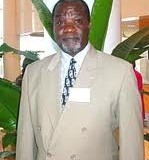
He said the over-reliance on Government to provide health infrastructure is responsible for the huge deficit. According to him, the private sector can play a very critical role in narrowing the gap.
“We must not wait for Government to build medical schools; they will never build enough. The private sector can do that. In terms of high quality care, we do take people abroad for medical treatment because the facilities are not here. Meanwhile, we have Ghanaian doctors working there,” he said.
Dr. Rogo, who is also the head of the International Finance Corporation’s (IFC) Health in Africa Initiative (HiA), was speaking at a partners’ engagement forum on the HiA earlier this week.
He called on public and private institutions to collaborate rather than antagonise each other, as is the case in most African countries. “There’s a suspicion between the public and the private sector, so overcoming the suspicion and building a bridge should be most important.”
He emphasised that public and private health institutions must not see each other as competitors, but rather as partners in delivering health services to their people.
The lack of credit facilities for private health institutions is also a factor accounting for poor health infrastructure in Africa, Dr. Rogo said. “Most health facilities in Africa are very small, so moving them from the level where they are just subsistence into a viable business is very critical. Also, the capacities of these businesses have to be built.
“If there are more credible public and private health institutions, then the quality of healthcare will be better since the challenge of the National Health Insurance Authority (NHIA) has been getting institutions to render the sort of quality service required. The NHIA’s duty is not to provide the care but the money. Insurance cannot succeed if the service providers are not there in the quality and quantity desired.”
The Health in Africa Fund (HiA) Ghana project was launched in 2012 as part of the World Bank’s contribution to the health sector. The project aims to support Government to harness the private sector in strengthening its health systems, and make effective use of resources in addressing the country’s health challenges.
The HiA is a key component of the IFC’s US$1billion Africa health strategy, which includes improving the operating environment for companies in addition to providing financing.
The Health in Africa Fund, managed by Aureos Capital, will invest in small- and medium-sized companies in sub-Saharan Africa, such as health clinics and diagnostic centres, with the goal of helping low-income Africans gain access to affordable, high-quality health services.
The Fund will be measured not only by fiscal performance, but also by its ability to cultivate businesses serving the poor.


